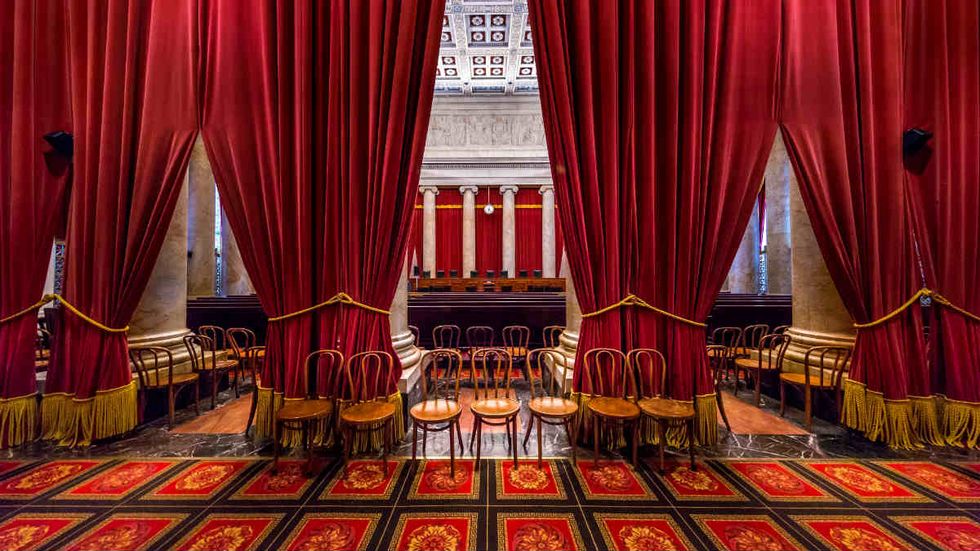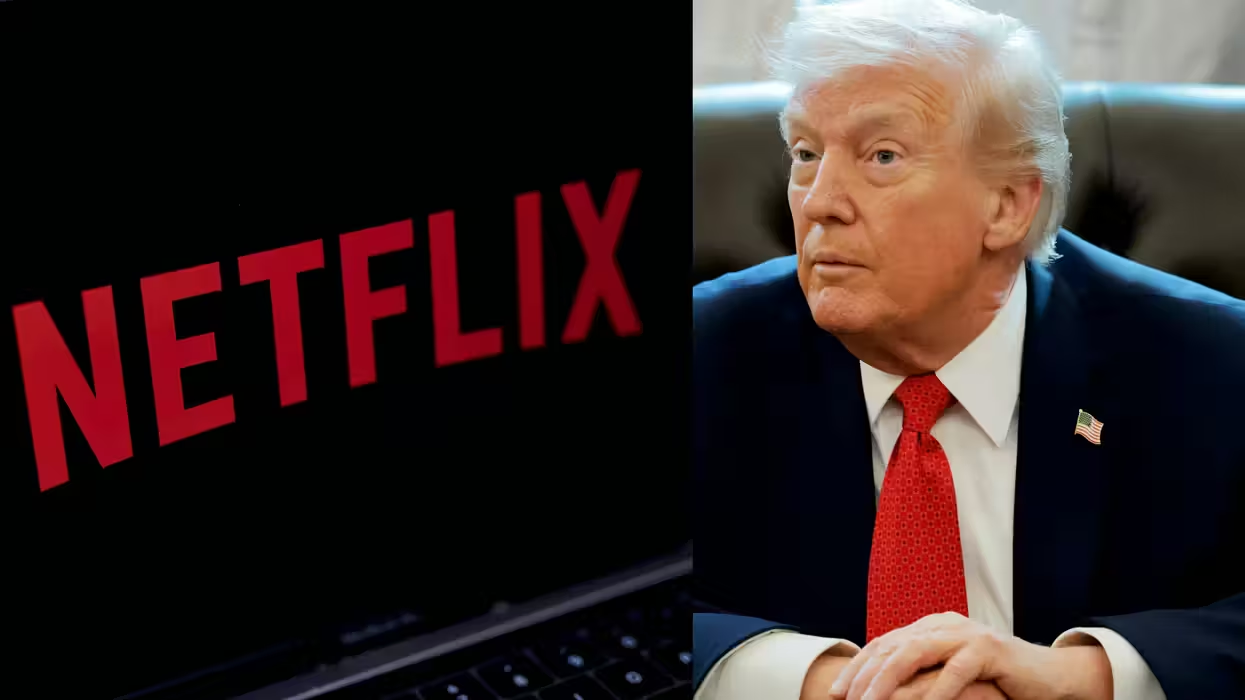
© 2025 Blaze Media LLC. All rights reserved.
SCOTUS: Public unions may no longer compel you to donate to the Democratic Party
June 27, 2018
Conservatives rarely win important offensive victories on major policy issues at the courts, and the few victories we secure, such as Heller, tend to be whittled down over time. But the victory today for free speech against coerced union dues for government workers might turn out to be the first consequential and enduring victory in quite some time.
In Janus v. AFSCME, the court dealt with one of the most foundational questions of free speech and property rights. Should someone who works for the government be forced, as a condition of employment, to donate a part of their salary against their will to a private organization – a labor union – that gives tens of millions of dollars to one political party?
Obviously not. As Alito said, writing for the 5-4 majority, “Suppose, for example, that the State of Illinois required all residents to sign a document expressing support for a particular set of positions on controversial public issues—say, the platform of one of the major political parties. No one, we trust, would seriously argue that the First Amendment permits this.”
In her dissent, Justice Kagan warns, “Public employee unions will lose a secure source of financial support.” But that is the point. Since when can one political party or issue-advocacy group use the force of law to get most of its funding against the will of the people who pay for it? If their activities are so compelling in the interests of the workers, then they should do fine without a government mandate.
As Alito warned, when the government coerces speech, it is even worse than when it squelches speech:
When speech is compelled, however, additional damage is done. In that situation, individuals are coerced into betraying their convictions. Forcing free and independent individuals to endorse ideas they find objectionable is always demeaning, and for this reason, one of our landmark free speech cases said that a law commanding “involuntary affirmation” of objected-to beliefs would require “even more immediate and urgent grounds” than a law demanding silence.
In this case, involving financial contributions, it’s even worse. Alito quotes from Thomas Jefferson: “To compel a man to furnish contributions of money for the propagation of opinions which he disbelieves and abhor[s] is sinful and tyrannical.”
Free speech except if the sexual identity alphabet soup disagrees
The categorical affirmation of free speech and property rights from the court in this case makes the incoherent opinion of Anthony Kennedy in Masterpiece – the case of a baker punished for declining to serve a gay wedding ceremony – all the more bizarre and downright capricious.
Many court observers have expressed their astonishment at watching Kennedy strongly side with conservatives on the First Amendment. Not only did he sign on to Alito’s broad opinion in Janus, he wrote an even stronger concurrence in NIFLA – the crisis pregnancy center case – which dovetails well with the union case on freedom of speech and conscience.
In NIFLA, the court said that California cannot force pro-life pregnancy centers to advertise abortion services provided by the state in other locations. This case not deals with states compelling speech and also violating religious liberty. Many of us were shocked at Kennedy’s strong concurrence, in which he ripped California for a law that “compels individuals to contradict their most deeply held beliefs, beliefs grounded in basic philosophical, ethical, or religious precepts, or all of these.” He chided the state legislature for referring to its bill as “forward thinking” when, in fact, “it is not forward thinking to force individuals to be an instrument for fostering public adherence to an ideological point of view [they] fin[d] unacceptable.”
He concluded with one of his sharpest proclamations ever: “Governments must not be allowed to force persons to express a message contrary to their deepest convictions. Freedom of speech secures freedom of thought and belief.”
#mc_embed_signup{background:#fff; clear:left; font:14px}
/* Add your own MailChimp form style overrides in your site stylesheet or in this style block.
We recommend moving this block and the preceding CSS link to the HEAD of your HTML file. */
Yet, shockingly, in Masterpiece, Kennedy implied that a neutral law coercing all religious business owners to serve a gay wedding with their private property and involuntary servitude would be constitutional. He said that the First Amendment doesn’t allow business owners to “deny protected persons equal access to goods and services under a neutral and generally applicable public accommodations law.” Based on this decision, the ACLU declared that were a new gay couple to come into Jack Phillips’ shop tomorrow and ask him to bake a gay wedding cake, he must comply. And indeed, an Arizona court issued a ruling a few days later along those lines, based on Kennedy’s writings.
What gives? Clearly, Kennedy is creating a protected class of people who are so powerful, they can now foster “public adherence to an ideological point of view” business owners “fin[d] unacceptable” and “force persons to express a message contrary to their deepest convictions.” In other words, he is crowning the sexual identity alphabet as a national religion with the power to compel against conscience – the very hallmark of the Establishment Clause, according to James Madison.
The courts are hopelessly political
It’s amazing how justices are able to get the Constitution right when it doesn’t involve their personal political outcomes. In the case of Kennedy, that means everywhere except for the homosexual agenda. We find the same thing with the other four liberals as well. Generally speaking, they are all strong on the First Amendment when it doesn’t implicate a chosen group of theirs.
Justice Kagan, who wrote a sharp dissent in the forced labor dues case, joined with the majority in Minnesota Voters Alliance v. Mansky in recognizing the First Amendment right to wear political T-shirts in polling stations.
The courts are driven by politics as much as the other branches, but they are unelected. Sometimes they get it right, and sometimes the get it wrong, but the people have almost no recourse against the Supreme Court when the justices get it wrong. In general, we need to move political issues away from the courts or at least teach Civics 101 to the states and other branches of government – that they can use their powers to push back against the courts when they disagree. But if liberals insist we live by every utterance of even a lower court when it violates the Constitution, let them die by those utterances when they clearly uphold the most basic First Amendment rights as our Founders would have understood them.
Want to leave a tip?
We answer to you. Help keep our content free of advertisers and big tech censorship by leaving a tip today.
Want to join the conversation?
Already a subscriber?
Blaze Podcast Host
Daniel Horowitz is the host of “Conservative Review with Daniel Horowitz” and a senior editor for Blaze News.
RMConservative
Daniel Horowitz
Blaze Podcast Host
Daniel Horowitz is the host of “Conservative Review with Daniel Horowitz” and a senior editor for Blaze News.
@RMConservative →more stories
Sign up for the Blaze newsletter
By signing up, you agree to our Privacy Policy and Terms of Use, and agree to receive content that may sometimes include advertisements. You may opt out at any time.
Related Content
© 2025 Blaze Media LLC. All rights reserved.
Get the stories that matter most delivered directly to your inbox.
By signing up, you agree to our Privacy Policy and Terms of Use, and agree to receive content that may sometimes include advertisements. You may opt out at any time.






